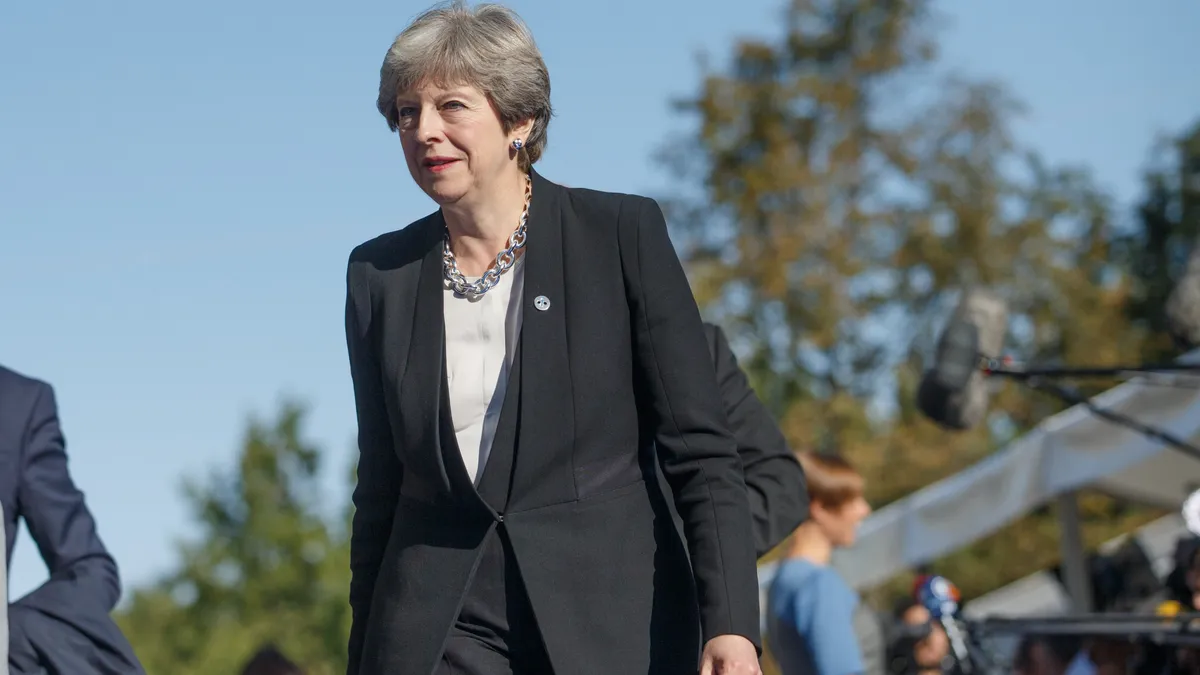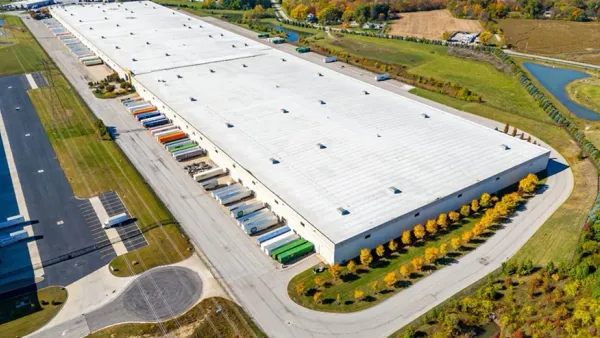Dive Brief:
- Goldman Sachs has increased the probability of a no-deal Brexit to 15%, up from 10%, after Prime Minister Theresa May last week announced her intention to resign June 7, according to a research note emailed to Supply Chain Dive.
- The increase is not because the bank expects the Parliament or the next Prime Minister to adopt a no-deal platform, but because no-deal could be added as an option to a "second referendum to unlock the impasse," an economist for the bank wrote. The opposition Labour party has shown support for a second referendum after a poor showing in the European Union election in which the newly formed Brexit party faired especially well.
- The probability of no Brexit remains unchanged at 40%, but the bank doesn't expect a resolution anytime soon. "We expect another Article 50 extension beyond 31 October, but we look for an eventual resolution before the EU finalises its next five-year budget plan in mid-2020," Goldman Sachs wrote. Last month, the deadline for reaching a Brexit agreement was pushed to Oct. 31, 2019.
Dive Insight:
May urged the U.K. to reach a deal in comments earlier in the week, announcing her intention to introduce her plan for a vote again next month. This new proposal was withdrawn when she announced later the same week she would leave office in June. May's plan failed three times in Parliament, and Goldman Sachs doesn't expect her successor to do much better, saying that person will "face the same confluence of constraints as PM May."
The disagreement surrounding Brexit and the uncertain climate it creates has hurt the U.K.'s reputation as a good place to do business, Adam Marshall, the director general of the British Chambers of Commerce said in a statement responding to May's resignation.
The business community has called for the government to figure out a deal before Oct. 31 to avoid a no-deal scenario and allow them to plan appropriately.
Businesses have seen some positive signs since the Brexit delay was agreed to. Britain's services sector has shown some strength with the IHS Markit Cips purchasing managers index increasing to 50.5 from 49.7. Anything over 50 shows growth, according to The Guardian.
Business stockpiling also helped with the U.K. economic growth numbers for the first quarter of 2019. But this stock buildup will end at some point and will result in dampening growth, according to The Guardian.
The events over the last few days have been dramatic, but they have not led to any more clarity for the business community.
"Our backdrop this week is the political situation, which is just as unclear as it was a month ago prior to Theresa May quitting – hard Brexit; no-deal Brexit, Irish backstop or no backstop, Boris Johnson, Michael Gove or Dominic Raab – who the heck knows?" David Blanchflower, a professor of economics at Dartmouth College, said in The Guardian.
This leaves the business community to lobby against a no-deal Brexit with rhetoric similar to what they've been using for the last few months. Higher prices will follow if the U.K. loses the ability to trade frictionlessly with the European Union, Ewan MacDonald-Russell, the head of policy for the Scottish Retail Consortium, wrote in an op-ed last week.
"A failure to agree a deal would also unleash these problems at perhaps the worst time of year," MacDonald-Russell wrote. "Retailers will be preparing for Christmas, stretching already limited warehousing capacity, and the UK will be importing the majority of its fresh food from the EU, magnifying the impact of border delays."














